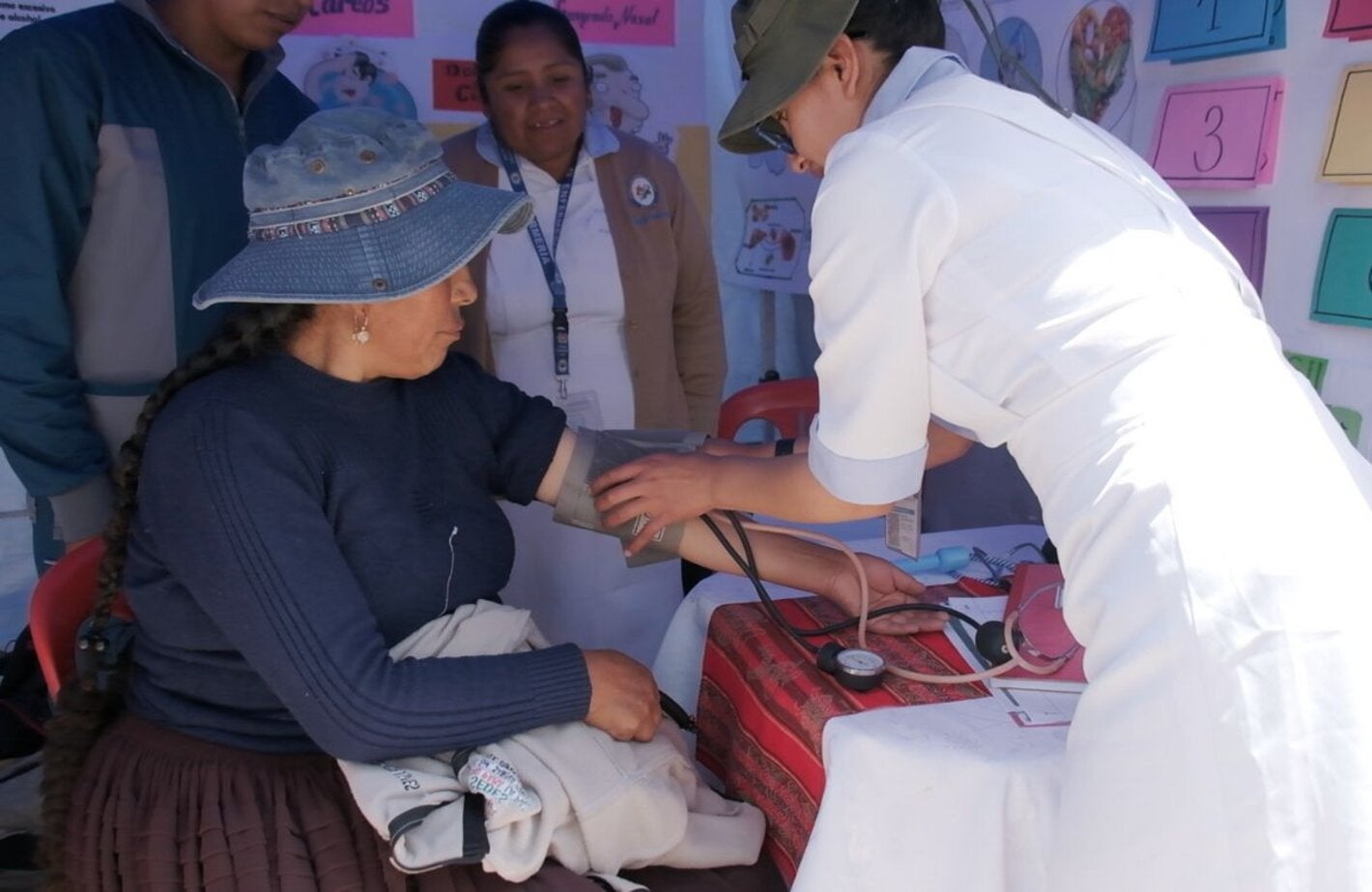
Washington DC, 4 December 2023 (PAHO) –Moving towards equitable access to comprehensive, integrated, and quality health services, focused on people and communities, is crucial to improve health outcomes in the Region, underscored James Fitzgerald, Director of Health Systems and Services at the Pan American Health Organization (PAHO). He made these remarks during the “Meeting for Equity: Local Knowledge in Health for Global Transformation,” organized by the Americas Network for Health Equity (RAES, in Spanish) in San José, Costa Rica, from 30 November to 1 December, 2023.
"Reducing health inequities has become more complex due to changes in epidemiological and demographic patterns in our region," said Fitzgerald. He emphasized that the aging population and the rise in chronic non-communicable diseases have created new demands within health systems.
The emphasis on Primary Health Care and strengthening the first level of care stands as fundamental strategies to improve equity in access to health care. Fitzgerald stressed the importance of adopting a comprehensive approach to care from the perspective of social determinants of health, highlighting the relevance of prevention and the overall well-being of individuals and communities.
Furthermore, he highlighted the necessity for collaborative and networked efforts to strengthen these strategies, integrating an interprogrammatic approach that addresses priority health needs in complex environments.
“At PAHO, we strive to incorporate the cultural diversity of communities in the region's countries by undertaking initiatives that support the inclusion of traditional medicines in care models. These perspectives and knowledge enrich the primary health care approach within our health systems,” said Fitzgerald.
The collaborative work among PAHO, the International Foundation for Integrated Care network for Latin America (IFIC-Latam), and the Network of the Americas for Health Equity has been instrumental in addressing challenges such as managing lists and waiting times in health care. A conceptual model centered on people has been developed to enhance timely access to health services.
“This model will be deliberated upon by a group of experts in the region, drawing on the concrete experiences of countries that have made progress in this area. The aim is to develop recommendations tailored to our region's reality, supporting more countries in resolving complex issues that hinder timely access to health services,” explained Fitzgerald.
In his closing, he underscored the significance of collaborative efforts among governments, civil society, academic groups, communities, and patient groups to achieve substantial progress in improving the health of individuals and communities in the region.



